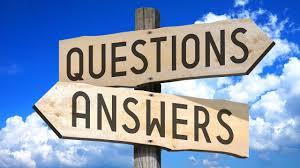What role do external powers play in either exacerbating or resolving these conflicts? By Hugo Keji

External powers play a crucial and often complex role in either exacerbating or resolving conflicts in the Middle East. Their involvement can be driven by a mix of strategic, economic, ideological, and humanitarian interests.
Here's a breakdown of their roles:
1. Exacerbating Conflicts
A. Military Intervention and Support
- Proxy Wars: External powers often support different factions within Middle Eastern conflicts, turning local disputes into broader proxy wars. For example, in Syria, the U.S. supported certain rebel groups, while Russia and Iran backed the Assad regime. Similarly, in Yemen, Saudi Arabia and its allies support the Yemeni government, while Iran backs the Houthi rebels. This external support can prolong conflicts and make them more intense.
- Arms Sales: The U.S., Russia, and several European countries are major suppliers of arms to the region. This influx of weapons has fueled ongoing conflicts, making them deadlier and harder to resolve. Saudi Arabia, the UAE, and other regional actors often receive substantial military support from Western powers, while Iran and Syria receive support from Russia and other allies.
- Direct Military Involvement: External powers sometimes engage in direct military action. For example, the U.S. has conducted operations in Iraq, Syria, and Libya, while Russia has been heavily involved in Syria. These interventions can lead to short-term military victories but often result in long-term instability and resentment.
B. Diplomatic and Economic Pressures
- Sanctions and Isolation: Countries like the U.S. and EU members have imposed sanctions on nations such as Iran and Syria. While sanctions aim to pressure governments into changing their behavior, they often exacerbate humanitarian crises and economic hardships, which can fuel further unrest.
- Diplomatic Alliances: External powers often form alliances with specific countries or groups, creating geopolitical blocks that heighten tensions. For instance, the U.S.'s close ties with Israel and Saudi Arabia are often seen as counterbalances to Iran, contributing to the region's polarized environment.
AfriPrime App link: FREE to download...
https://www.amazon.com/Africircle-AfriPrime/dp/B0D2M3F2JT
2. Resolving Conflicts
A. Mediation and Diplomacy
- Peace Negotiations: External powers sometimes play a key role in facilitating peace talks. For example, the U.S. has been involved in the Israeli-Palestinian peace process, albeit with limited success. Russia has also positioned itself as a mediator in the Syrian conflict, while the UN, often backed by Western powers, has attempted to mediate in Yemen and Libya.
- Normalization Efforts: Initiatives like the Abraham Accords, supported by the U.S., have led to the normalization of relations between Israel and several Arab states. These efforts can help reduce tensions and build new alliances that contribute to regional stability.
- Diplomatic Pressure: External powers sometimes use diplomatic pressure to bring about conflict resolution. This can involve using the UN or other international platforms to broker ceasefires or peace agreements, as seen in efforts to end conflicts in Lebanon, Sudan, and Yemen.
B. Economic Assistance and Reconstruction
- Humanitarian Aid: External powers, through agencies like the UN, NGOs, and bilateral agreements, provide humanitarian aid to war-torn regions. This aid is crucial for alleviating the suffering of civilian populations and can help create conditions for peace by addressing some root causes of conflict, such as poverty and displacement.
- Post-Conflict Reconstruction: After conflicts, external powers often play a significant role in reconstruction efforts. For example, the EU and the U.S. have been involved in rebuilding Iraq and Libya, though the effectiveness of these efforts varies. Reconstruction aid can help stabilize post-conflict societies, but it can also be a source of tension if not managed inclusively.
C. Counterterrorism Efforts
- Coalition Building: External powers often form international coalitions to combat terrorist groups like ISIS and Al-Qaeda. These coalitions conduct military operations, share intelligence, and provide training to local forces. While these efforts can weaken terrorist networks, they can also lead to unintended consequences, such as civilian casualties and further radicalization.
- Support for State Institutions: Strengthening state institutions through external support is another way to resolve conflicts. This includes training and equipping security forces, supporting governance reforms, and promoting the rule of law. Such efforts are intended to help local governments regain control and legitimacy, reducing the likelihood of conflict recurrence.
3. Mixed Outcomes
- Complex Motivations: The involvement of external powers is often driven by a mix of self-interest and genuine concern for stability. For example, while the U.S. has promoted democracy in the Middle East, its interventions have sometimes led to unintended chaos. Similarly, Russia's support for the Assad regime has stabilized the Syrian government but at the cost of prolonging the civil war.
- Shifting Alliances: The geopolitical landscape in the Middle East is fluid, with alliances shifting based on changing interests. External powers must navigate these complexities, which can lead to both conflict exacerbation and resolution. For example, Turkey's evolving relationships with Russia, the U.S., and regional actors like the Kurds have had both stabilizing and destabilizing effects.
In conclusion, external powers have a dual role in the Middle East, with their actions sometimes exacerbating conflicts through military interventions and support, while at other times contributing to conflict resolution through diplomacy, economic assistance, and counterterrorism efforts. Their involvement is often a reflection of their broader strategic interests, which can complicate efforts to achieve lasting peace in the region.
AfriPrime App link: FREE to download...
- Questions and Answers
- Opinion
- Motivational and Inspiring Story
- Technology
- Live and Let live
- Focus
- Geopolitics
- Military-Arms/Equipment
- Ασφάλεια
- Economy
- Beasts of Nations
- Machine Tools-The “Mother Industry”
- Art
- Causes
- Crafts
- Dance
- Drinks
- Film/Movie
- Fitness
- Food
- Παιχνίδια
- Gardening
- Health
- Κεντρική Σελίδα
- Literature
- Music
- Networking
- άλλο
- Party
- Religion
- Shopping
- Sports
- Theater
- Health and Wellness
- News
- Culture

